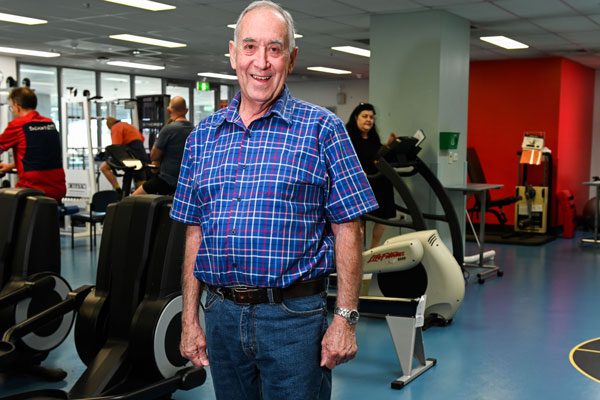
Richard’s family realised he wasn’t the same after his successful surgery at RBWH.
The RBWH Foundation has launched its Spring Appeal, showcasing the wide-ranging effects of delirium and the innovative work of Royal Brisbane and Women’s Hospital (RBWH) Internal Medicine and Aged Care to raise awareness of the often-misdiagnosed condition.
RBWH Clinical Director of Research and Education at Internal Medicine and Aged Care Professor Alison Mudge said delirium was an acute confusion of the brain. It can be difficult to diagnose and leads to longer hospital stays, extensive inpatient rehabilitation and complex care needs in hospital and once a patient returns home.
“We still don’t understand why it happens or have any effective drugs to treat it,” said Professor Mudge.
The Foundation’s Spring Appeal will help raise crucial funds to advance patient care and life-saving research for conditions like this.
Delirium is a leading hospital complication in Australia, costing healthcare services around $8.8 billion each year. Unfortunately, only about one-third of hospital-acquired delirium is diagnosed, or it is misdiagnosed as dementia. But almost 13 per cent of all inpatients in Australian hospitals experience delirium.
For RBWH cardiac patient Richard de Haast, delirium caused a complicated recovery and resulted in long-term cognitive issues.
“Richard didn’t even remember that we live in Brisbane, and he was angry all the time, which was devastating,” said Richard’s wife Irene.
“He wasn’t the Richard I knew anymore.”
Richard had been rushed to RBWH in cardiac arrest and after a successful surgery, was moved to the Intensive Care Unit (ICU). But just when the family thought the worst was behind them, they realised Richard wasn’t himself.
“During my period in ICU, I had no recognition of my surroundings or memory of people, including my family,” shared Richard.
“There were times I had to be helped to walk, dress and behave correctly.”
For Irene and their family, the journey was heartbreaking. Richard’s recovery was a gruelling eight-month process, requiring regular physiotherapy, psychology and occupational therapy sessions for his cardiac and brain conditions.
“I do remain with a deficit of short-term memory. I was frustrated, I couldn’t drive for the first six months when I returned home. I was fortunate to have my wife, Irene, and wonderful people around,” Richard said.
In the last decade, Professor Alison Mudge and her team have made powerful strides in improving care for older people. Programs like Eat Walk Engage have shown a 47 per cent reduction in delirium, increased discharge home and a trend towards reduced six-month mortality and readmission.
“Eat Walk Engage provides better, safer care that reduces delirium and gets our older patients home to their families earlier,” said Professor Mudge.
To advance patient care innovation and life-saving research, like this, consider donating today at www.rbwhfoundation.com.au.